Series: No-Drama IT September: Last Call Before Windows 10 Sunset — Part 2 of 4.
Missed Part 1 on Windows 10 EoS? Catch the 30-day plan, then come back to harden your basics. Next week: five myths leaders need to drop about cybersecurity.
Fancy tools help, but habits stop most attacks. Here are four moves Oregon clinics and SMBs can run without blowing up the day.
Based on what 10D Tech sees in Salem, Albany, and Corvallis, these four habits knock out most preventable risk.
1) Keep your network secure
Turn on WPA3 for Wi-Fi, change default router credentials, and hide your SSID. Segment guest Wi-Fi from medical and business traffic. Remote staff should use a VPN and MFA to reach internal apps.
Patch routers and firewalls on a schedule. A stale appliance in Albany can be the front door for a ransomware crew.
Need help tightening the edge? Our Managed cybersecurity team sets policies that stick and watches for suspicious behavior.
2) Teach your team how to spot trouble
Publish simple rules: strong passwords, MFA everywhere, no link-clicking without checking the sender, and never reusing credentials. Run monthly phishing tests and send 90-second refreshers.
Keep a single playbook for “I clicked” moments. The faster someone raises a hand, the cheaper the cleanup.
Questions from staff piling up? Point them to IT help desk & remote support to get answers in minutes, not tomorrow.
3) Back up your important data (then test restores)
Back up files, EMR databases, payroll, and device images on a schedule. Keep one copy offsite or in the cloud, one local for quick restores, and one immutable copy so ransomware can’t scramble it.
Run a quarterly restore test. If you haven’t tested, you don’t have a backup … you just have a hope.
We design and monitor backup plans through Data backup & disaster recovery so you’re not guessing during a crisis.
4) Limit data access
Use least-privilege access. Give people only what they need and nothing more. Remove ex-employees the same day they leave. Split admin rights across trusted roles with MFA and audit logs.
Review access quarterly. It takes an hour and saves weeks of pain.
Local story: Technician Sam tidies a Salem clinic’s security in two weeks
As an example, Sam, a 10D Tech technician, consults for a Salem clinic that had decent tech but messy habits. Passwords lived in notebooks, the Wi-Fi password was on the break room fridge, and backups “should be running.”
Sam started with a 60-minute walk-through, turned on MFA for email and EHR, and split guest Wi-Fi from clinical devices. A quick lunch session showed staff how to report a phishing attempt without shame.
They moved backups to a 3-2-1 model with an immutable copy. A spot check found two ex-contractors still had portal access … now closed.
Two weeks later, the clinic passed a small insurance security review with zero follow-ups. The sticky note password was retired to the recycling bin.
Want to cut risk this month?
Option 1: Book a quick cyber hygiene check. Call (541) 243-4103 or (971) 915-9103, or schedule at 10dtech.com/discoverycall.
Option 2: Prefer a checklist we’ll maintain with you? Our Managed cybersecurity and IT help desk & remote support teams keep the habits humming.
FAQs
Q1: What is cyber hygiene in plain language?
A: It’s the daily and weekly tech habits: patching, MFA, backups, and training, that block most attacks.
Q2: How often should we run phishing training?
A: Monthly micro-training plus periodic tests works well. Keep it short and supportive.
Q3: What backup schedule should we use?
A: Daily file backups, frequent database snapshots, and an immutable copy. Test restores quarterly.
Q4: Who should have admin rights?
A: Only a few trusted roles with MFA and logging. Everyone else gets least-privilege access.
Q5: Can small clinics afford this?
A: Yes. Start with MFA, basic backups, and training. Add monitoring with Managed cybersecurity when ready.
Ready to clean up your risk without slowing the clinic? Call (541) 243-4103 or (971) 915-9103, or book your Free IT Checkup at 10dtech.com/discoverycall.







